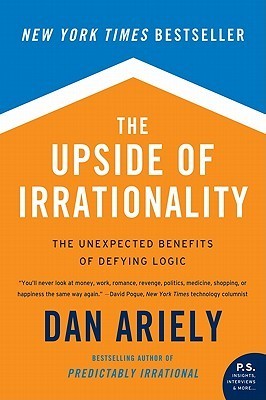
Freakonomics: A Rogue Economist Explores the Hidden Side of Everything
Book Description
What if the truths behind everyday choices are hidden in plain sight? Dive into a thrilling exploration where economics meets the unexpected, unearthing connections between crime rates and the names of children. Revel in the shocking revelations that challenge conventional wisdom and dissect human behavior through the lens of data. Levitt and Dubner embark on a journey across cultures and communities, unveiling the bizarre and often counterintuitive factors that shape our world. What secrets lie beneath the surface of our decisions, waiting to be exposed? Discover the hidden economics that govern life as you know it.
Quick Book Summary
"Freakonomics: A Rogue Economist Explores the Hidden Side of Everything" by Steven D. Levitt, with Stephen J. Dubner, is an unconventional exploration of economics applied to the quirks of everyday life. The authors challenge traditional assumptions by applying data-driven analysis to topics ranging from crime rates and parenting techniques, to the real estate market and even baby names. Their approach exposes surprising relationships—such as the link between legalized abortion and falling crime rates, or how incentives drive teachers and sumo wrestlers alike to cheat. By questioning conventional wisdom and digging beneath surface explanations, Levitt and Dubner reveal the unexpected forces truly shaping human behavior, highlighting the pervasiveness and power of incentives, the pitfalls of causation versus correlation, and the value of asking unusual questions to discover how society really works.
Summary of Key Ideas
Table of Contents
Incentives Drive Behavior
Steven D. Levitt and Stephen J. Dubner present economics as an analytical toolkit for understanding the peculiarities of human behavior. They argue that incentives—financial, social, or moral—are the fundamental engine behind decisions made by individuals and organizations. By examining diverse case studies, like cheating among sumo wrestlers and schoolteachers, the authors display how people adjust their actions in response to incentives, sometimes bending or breaking rules when the rewards outweigh the risks. This focus on incentives unlocks deeper patterns underlying seemingly unrelated social phenomena.
Unintended Consequences of Policies
A core theme is the unintended consequences of well-intentioned policies. For example, the authors analyze the surprising drop in crime rates during the 1990s. While many attributed the decline to improved policing or the booming economy, they propose a controversial connection: the legalization of abortion in the 1970s led to fewer unwanted children who might have grown up in adverse conditions, thereby reducing future crime. This argument illustrates how social interventions can have far-reaching, unanticipated effects—sometimes with greater impact than originally intended.
Correlation vs. Causation
Levitt and Dubner emphasize the importance of distinguishing correlation from causation. They contend that popular assumptions often confuse the two, leading to mistaken beliefs about the effectiveness of parenting strategies or the value of certain baby names. By using robust statistical analysis, the authors reveal that many popular beliefs are based on coincidental patterns rather than causal relationships. This analytical rigor encourages a more skeptical and data-driven approach to making sense of the world.
The Impact of Information Asymmetry
Another major lesson is the role of information asymmetry—where one party in a transaction holds more or better information than the other. The book highlights how experts such as real estate agents, car salesmen, or insurance brokers can exploit their superior knowledge for personal gain. However, the advent of the internet and the democratization of information have begun to erode these imbalances, shifting power dynamics and changing relationships between consumers and professionals.
Challenging Conventional Wisdom
Throughout "Freakonomics," Levitt and Dubner urge readers to question conventional wisdom and to look beneath the surface of accepted narratives. They remind us that the answers to life’s perplexing questions often require unconventional thinking, rigorous data analysis, and a willingness to ask uncomfortable questions. By challenging accepted truths, applying critical thinking, and valuing empirical evidence above all, "Freakonomics" illuminates the hidden forces shaping our everyday choices and societal trends.
Download This Summary
Get a free PDF of this summary instantly — no email required.





